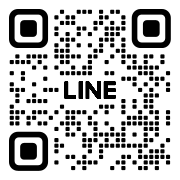US Standard
Radiation Measurement of VIOTECHE
UVGI was measured using an Digital UV Radiometer (Solarmeter Model 8.0 UV Meter Serial No.00592, USA) fitted with a n integral sensor to measure irradiation at a wavelength of 254 nm.
The instrument was calibrated though the transfer of reading from Standard Meter Serial No.00001 simultaneously and equidistant from Solar UV light source. Meter No.00001 was calibrated ref. NIST standard by an independent test lab. Report on file at manufacturer. Readings were recorded as uW/cm2 per manufacturer’s instructions.
The US National Institute for Occupational Safety and Health
recommends that exposure to UVGI (254 nm) be less than 6000 microJ/cm2
(6000 microWatt approximately = sec/cm2) over a daily 8-hour period on
unprotected skin or eyes.
The Center for Disease Control (CDC) and National Institute for Occupational Safety and Health (NIOSH) published in 1972 a Recommended Exposure Limit (REL) for occupational exposure to UV radiation. The REL is intended to provide protection to workers from acute effect of UV exposure. Photosensitive persons exposed concurrently to photoactive chemicals might not be protected by the recommended standard.
The table below lists some permissible exposure times for given effective irradiance levels of UVC Energy at 253.7 nm. UVC source can be measured with handheld radiometers and if values exceed permissible (CDC / NIOSH REL) exposure levels personal protective equipment (PPE) should be worn. PPE consists of eyewear and non-UVC transparent clothing covering all exposed skin.
|
Permissible Exposure Time |
Effective Irradiance, microwatt/cm2 |
|
24 hr |
0.07 |
|
18 hr |
0.09 |
|
12 hr |
0.14 |
|
10 hr |
0.17 |
|
8 hr |
0.2 |
|
4 hr |
0.4 |
|
2 hr |
0.8 |
|
1 hr |
1.7 |
|
30 min |
3.3 |
|
15 min |
6.7 |
|
10 min |
10 |
|
5 min |
20 |
|
1 min |
100 |
|
30 sec |
200 |
|
15 sec |
400 |
|
5 sec |
1200 |
|
1 sec |
6000 |
Source : ACGIH (2007)











